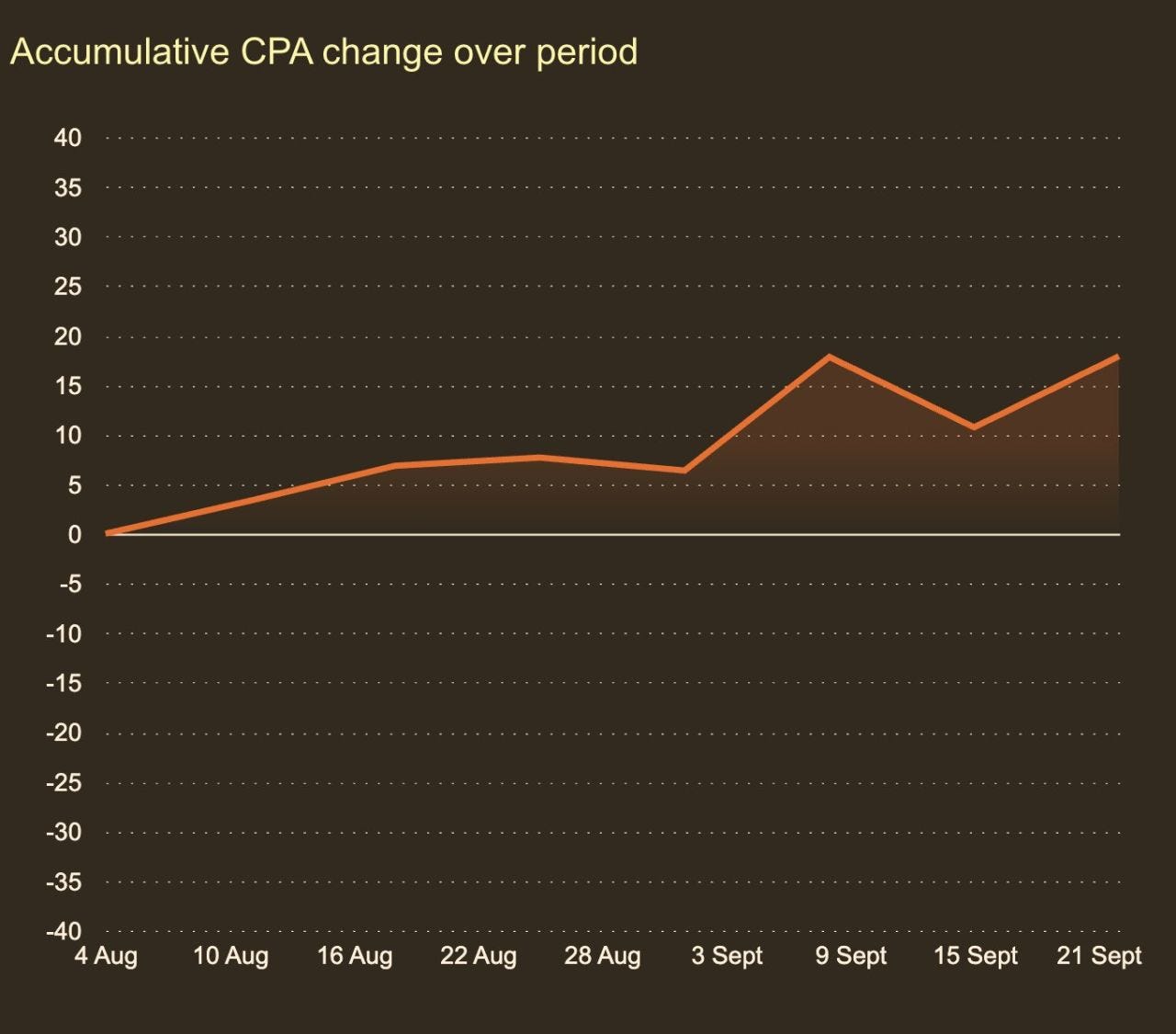So much talk at the moment about andromeda, but this was first announced last December on the Meta eng blog (which should be RSSed for any meta marketer), and its impact has long been felt.
September was brutal, and by many degrees worse than last September.
I published mid September this chart on LinkedIn and it got a lot of conversation going.
Off the b…



